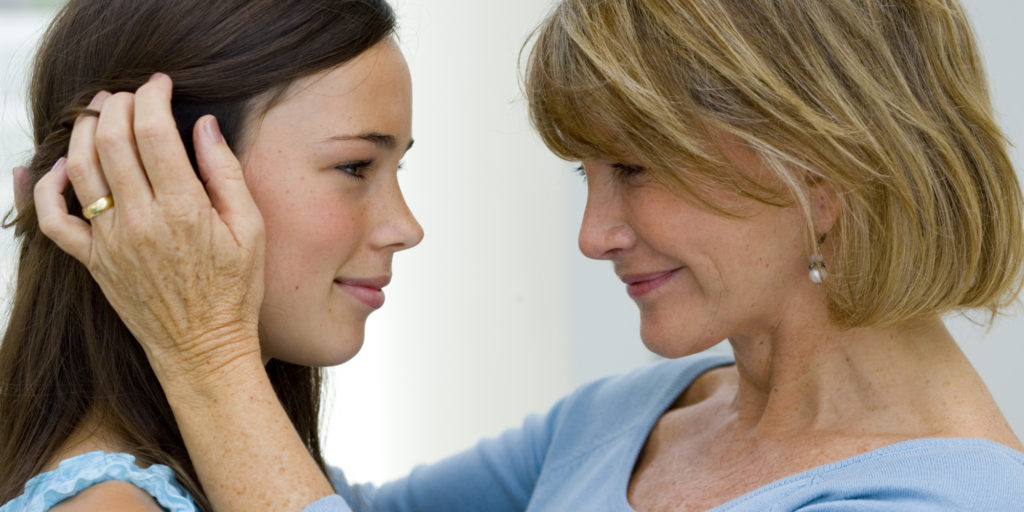By Jonathon Van Maren
In my earlier blog post, I noted that there is an increasing intolerance to any point of view that might illustrate any level of caution when it comes to the implementation of transgenderism—even when it might include physical or chemical castration for underage boys, or mastectomies for underage girls. Then, I stumbled across this chilling column written by Suzanna Descalzi, who is relating events told to her by Linda Macdonald. Macdonald describes herself as a “left-leaning Canadian mom, believer in science and common sense, who is navigating life with her 19-year-old trans identified daughter. She hoped that her daughter will opt out of medical transition and eventually come to a more genuine understanding of who she is.”
Macdonald realized, after attending a support group sponsored by Family Services Ottawa and the Children’s Hospital of Eastern Ontario for “parents and caregivers of gender creative, trans, transgender children, youth, or young adults” that “science and common sense” have no place in the trans movement. Here’s what happened when she attended the support group:
It was my turn to introduce myself. “Oh…,” I thought nervously, “here it goes!”
I glanced around at the others in the circle. Like me, they were all parents of children who had decided they were transgender. They were smiling politely, looking at me expectantly. I gripped the top of the spiral-bound notebook in my lap with both hands and, ignoring the group leader’s request to “state your name and preferred pronouns,” I began.
“Hi, my name is Linda and I am the mother of a 19-year-old girl who thinks she’s transgender. Well, she thinks she’s a boy, but really, she’s a girl. I mean, you can’t change your sex, right? It’s scientifically impossible.”
I paused and looked around. The friendly smiles froze in place. People shifted uncomfortably in their seats. I had attended this support group sporadically since my daughter announced she was a boy three and a half years ago. The 25-30 parents who regularly attended all appeared to accept their child’s self-declaration without question, and seemed happy to follow their doctors’ recommendation that they “affirm” their children.
Of the 18-20 children represented by these parents, all but approximately three were teenage girls, including my own. Yet, none of the parents seemed bothered by this wildly skewed statistic. They all unquestioningly, even enthusiastically, supported their children’s wish to transition—fighting for better, faster access to medical transitioning services, cheering when they heard our Children’s Hospital was about to start offering mastectomies to children under the age of 18.
I found it disheartening. To me, the group seemed like little more than a cheering section, where each parent proudly announced their child’s latest achievement—their first Lupron shot! their mastectomy, finally! And they were roundly congratulated by the other parents. These days, I attended only now and then, hoping to find someone else who was as skeptical as I was.
Once I had started talking, there was no going back. I had come here to tell them something important, and I was determined to finish. The words came tumbling out now.
“I think she has something called rapid-onset gender dysphoria. It’s new. Something scientists are only beginning to notice. It happens to kids—mostly teenage girls—who are really bright, but have trouble fitting in—well, my kid had a little trouble, but not a lot. And they spend too much time on the Internet—way too much—on sites like Tumblr and Reddit and YouTube—my kid spent too much time on this site called DeviantArt. I think that’s where it started—anyway they get brainwashed by transgender sites on the Internet. Oh, and another thing, kids with rapid-onset usually have friends who think they’re trans, too. It’s a social contagion. If one kid transitions, their friends get the idea, too. It spreads.”
This had sounded way better in my head. My nerves were getting the better of me.
I had intended to alert the parents to a new type of gender dysphoria that has emerged only within the last ten years or so, and scientists are only now beginning to study. Researchers are calling it Rapid-Onset Gender Dysphoria (ROGD). And it seemed to describe most of the children in this group.
Until about ten years ago, most cases of childhood gender dysphoria began very early, around age three or four. It was extremely rare, occurred predominantly in boys, and usually resolved on its own by the time the child reached adolescence. This new type of gender dysphoria comes on rather suddenly in adolescence, after an unremarkable childhood in which the child did not display any discomfort with their gender. It typically involves highly intelligent children who have pre-existing emotional issues, and who often have difficulty fitting in with their peers. They also spend far too much time on the Internet, immersing themselves in websites, videos and chat rooms that actively promote the transgender lifestyle as cool, fun and the solution to all of their problems. Most children with ROGD have friends who have also declared themselves transgender, providing evidence of a social contagion at work.
And ROGD predominantly affects girls. It has become so frequent and pervasive that it is turning long-held statistics of transgender children on their head. Today, it is mostly teenage girls who are presenting to gender clinics, and their numbers are exploding. I pressed on…
“…But I’m not supporting my daughter in her trans identification. I don’t want her to start hormones or have surgery or anything like that. I have made that clear to her. I don’t want her to do anything that might harm her body. I mean, there are no long-term studies to show these things are safe, right? So I told her I wouldn’t support any medical interventions; that she’ll have to pay for that herself if she wants it. She knows that and is OK with it, I think. At least, I don’t think she has done anything.”
I finished my speech and looked around. The silence was deafening.
Out of the corner of my eye, I saw one woman looking pointedly at the leaders and gesturing towards me, silently mouthing “why is she here?”
After a long, uncomfortable pause, one of the group leaders, a female-to-trans, spoke.
“OK. I’m going to take a minute to address this issue right now, because some things were said that are starting to make some of the other parents have…feelings.” S/he approached me, bent down and said in a quiet voice, “Why did you come here? This is a support group for parents of transgender kids.”
“I am a parent of a transgender teen,” I protested, “I came here to warn the other parents about rapid-onset gender dysphoria and to find other parents like myself who are skeptical of transitioning their kids, because I know they’re out there—”
“Not here!” called out one parent firmly. “Yeah, not here!” echoed another.
The group leader continued, “We are here to support our children on their transgender journey. You do not support your child. You belong in another group.”
“I asked if there was another group,” I replied. “I was told there wasn’t one.”
I wasn’t kidding. Earlier in the year, I had emailed the group’s administrator, asking if there was a group for parents like me, who wanted to take a more cautious approach and consider alternative ways to treat their child’s gender dysphoria. She politely replied no, this was the only support group available, but I should feel welcome to attend at any time.
I was not feeling welcome. And things were rapidly getting worse.
“Why are you taking notes?” one of the parents demanded. “I was wondering the same thing!” said another, angrily. I showed them my notebook. I had written only the group leader’s email address, some first names, and a tally of boys to girls who thought they were transgender.
“Check her phone. I bet she’s recording us, too!” I held up my phone to show them it wasn’t recording and turned it off for good measure.
“You’re making me feel unsafe!” cried a woman. Sobbing, she rushed from the room, and was quickly followed by another weeping mother.
A security guard appeared. “I’m sorry. I’m going to have to ask you to leave.”
“This is a group for parents of transgender kids. I am a parent of a transgender kid. I belong here,” I insisted. “This is a public building and I pay my taxes. I’m not doing anything wrong. You can’t kick me out.”
I was on a roll. They weren’t going to get rid of me if I could help it.
Suddenly, the room was empty and I found myself sitting alone. Apparently, the group had decided if I wasn’t going to leave, then they would, and they found another room.
Someone said the police had been called.
I decided this would be a good time to leave.
As I was leaving the building, I encountered the female-to-trans group leader consoling one of the sobbing mothers. I stopped to speak to her, thinking this might be my last chance to explain myself. But as I approached, she pulled out her phone, turned the video camera on, pointed it at me like a cross fending off a vampire, and said in slow, measured words, “I FEEL UNSAFE. YOU MUST LEAVE!”
The next day, I received a phone call from the group administrator.
I had been banned from the group.
Just think about that for a moment. A mother who doesn’t want her teen daughter to have a double mastectomy is considered by parents who support such things to be actually dangerous. The very idea that she wouldn’t unquestionably support her daughter’s desire to permanently alter her body, but would instead want to get several medical and psychological opinions first, makes her a transphobic heretic. Who are these parents who want their children to transition? Why would none of them be relieved to hear that perhaps surgery is unnecessary—that the problem is not that their daughter was born into the wrong body, but that she perceives herself incorrectly? Why would the idea that perhaps there is another solution render them hysterical?
MacDonald herself has an answer to these questions:
Looking back, I feel nothing but sympathy for these parents. I am sure they truly love their children and want to do what’s best for them. And they are doing exactly what their doctors and social workers advise. These parents are simply trusting in the system.
They don’t realize the system has been gamed.
From the politicians, who pass laws forcing us to use “preferred pronouns” and “affirm” our children or risk losing them.
To the schools, who teach children as young as five that they can change their sex, and hide it from their parents at school.
To the media, who normalize transgenderism by featuring transgender characters in movies, television and the news, casting them as victims and presenting them with awards for their “bravery”.
To the Internet, where sites like YouTube, Tumblr and Reddit provide a steady stream of trans-affirming propaganda.
To the universities, where women’s and gender studies departments openly deny science and rewrite history, and where health centres ‘counsel’ students on how to transition and bankroll hormone injections and surgery.
To the medical community, which is dominated by “gender specialists” who espouse The Gender Affirmative Model—a seriously flawed and unethical approach that is little more than political ideology dressed as science, while ethical professionals who speak out are fired or intimidated into silence.
The system has been gamed.
And our children, naïve and trusting, are its pawns.
Take it from somebody who knows. Take it from somebody who is living through this experience.
We live in crazy times.
_____________________________________________
For anyone interested, my book on The Culture War, which analyzes the journey our culture has taken from the way it was to the way it is and examines the Sexual Revolution, hook-up culture, the rise of the porn plague, abortion, commodity culture, euthanasia, and the gay rights movement, is available for sale here.









I’m so sorry this has happened to you! It’s happened to me too! I just don’t understand how parents can think that chemical castration followed by body mutilaion can be a good thing! I’ve met parents who’ve celebrated this?? As more research comes out proving this is a mental condition what happens the the kids and teens that are going through this now? Any support group I’ve found, all medical and mental health personnel are only there to help them transition, not to question, but to celebrate! Doctors and psychologists her in Australia are not allowed to treat this as a mental condition they are only allowed to help transition. If someone walked into a doctor and said I identify as an amputee would the doctor organise the removal of a limb or give them some sort of drug which would stop a limb from functioning while they get ready for the surgery?? No, of course not! Then how is the current treatment of these kids ok??
What was it that happened to you as well, Marissa?
Please pray for my daughter who is thinking of transitioning to male. Pray for me that I can find her some help in our area. Real help not a push to go ahead.
We will do that, Marilyn.
Does your daughter know how close minded these people are. DO people that cannot listen to a contrary opinion give your daughter pause and cause her to reconsider her beliefs? I guess all we can do is pray for sanity to return to our society
Linda Macdonald, I’m so sorry this happened to you. My husband and I went to the same group, felt similarly to you and ended up leaving during break. I guess neither of us was as brave as you. When it came to introductions, we just said our names and refused to say our pronouns and said nothing else. Once the intros were complete, people chimed in their ‘successes’. I recall a mom who was so excited that her 5 year old received ‘her’ new birth certificate with the ‘proper gender’ instead of the gender the doctor had ‘assigned’ at birth; a few others were excited about birth certificates as well; there were others still who were excited their children qualified ‘finally’ for hormone therapy even though they were underage – they had been able to convince the doctor that the child was ready. How can someone, during puberty, be ‘ready’ to halt their natural hormones from working? How could parents be celebrating ‘top surgery’ or ‘bottom surgery’? There wasn’t one professional along the way who was able to help us, as parents, figure out our ‘new’ relationships with our children. In fact, I dare say that it was the professionals who broke our family apart and ‘stole’ our then 16 year old from us. It has been a year and a half since we’ve seen our middle child. These professionals poisoned our children against us. Granted, we are a right leaning family unlike Linda Macdonald; however, we love our children unconditionally just as I trust Ms. Macdonald does. I just wished our children believed that. In the meantime, we pray for a new group to form. One that allows us as parents to be concerned for our children. One that allows us to express our fears about the unknown. One that allows us to grieve the loss of the children we had and learn how to form new relationships with them. Just because we don’t necessarily agree with the direction our children take, it will never take the fact away that they are our children whom we love deeply no matter what. Best of luck in your journey, Ms. Macdonald. We would be happy to hear from you if you’d like to get together sometime.